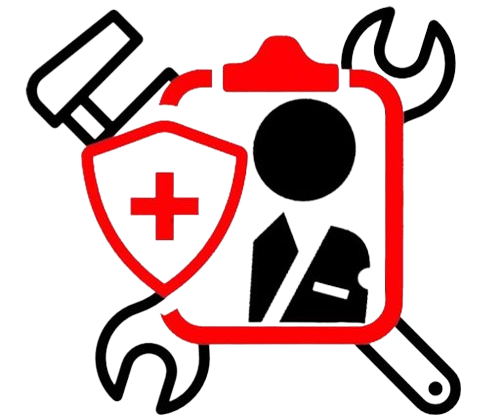Home and Car Insurance Quotes: In today’s fast-paced world, securing reliable insurance coverage for your home and car is not just a wise decision but often a legal requirement. With a plethora of insurance providers offering a myriad of policies, finding the right coverage at the right price can seem like navigating a maze. However, armed with the right knowledge and tools, you can simplify this process and make informed decisions that protect your assets and your finances.
Understanding: Home and Car Insurance Quotes
Before diving into the world of insurance quotes, it’s essential to assess your needs accurately. For your home, consider factors such as the value of your property, the contents within it, and any specific risks prevalent in your area, such as natural disasters or crime rates. Similarly, for your car, factors like the make and model of your vehicle, your driving habits, and your location play a significant role in determining the coverage you require.

Comparing Quotes
Once you have a clear understanding of your insurance needs, it’s time to start gathering quotes. Thanks to the internet, obtaining quotes from multiple insurance providers has never been easier. Many websites offer comparison tools that allow you to input your information once and receive quotes from several companies, saving you both time and effort.
When comparing quotes, it’s crucial to look beyond the premium cost alone. Consider the coverage limits, deductibles, and any additional benefits or discounts offered by each policy. While opting for the cheapest option may seem tempting, it’s essential to ensure that you’re not sacrificing essential coverage in the process.
Factors Affecting Insurance Premiums
Several factors influence the cost of your home and car insurance premiums. For home insurance, factors such as the age and condition of your home, its location, the presence of safety features such as smoke detectors and security systems, and your credit score can all impact your premium rates. Similarly, for car insurance, factors like your driving record, the make and model of your vehicle, your age, and even your credit score can affect how much you pay for coverage.
Discounts and Savings
Insurance providers often offer various discounts and savings opportunities that can help lower your premiums. These may include bundling your home and car insurance policies with the same provider, installing safety features such as anti-theft devices or smoke alarms, maintaining a clean driving record, or even paying your premiums annually instead of monthly. Be sure to inquire about any available discounts when obtaining quotes and take advantage of them to maximize your savings.
Reviewing and Updating Your Coverage
Once you’ve chosen an insurance policy, your work isn’t done. It’s essential to review your coverage regularly to ensure it continues to meet your needs. Major life events such as purchasing a new home, getting married, or adding a teen driver to your car insurance policy may necessitate adjustments to your coverage levels. Additionally, regularly reviewing your policy can help you identify any potential savings opportunities or changes in coverage options offered by your insurance provider.
Conclusion
Navigating the world of Home and Car Insurance Quotes doesn’t have to be overwhelming. By understanding your insurance needs, comparing quotes from multiple providers, considering factors that affect premiums, taking advantage of discounts and savings opportunities, and regularly reviewing and updating your coverage, you can make informed decisions that protect your assets and your financial well-being. With the right approach, securing reliable insurance coverage can provide you with peace of mind knowing that you’re prepared for whatever life throws your way.
Also Read:
- Best Home Insurance Policy Quotes
- House Insurance Quotes – Insurance Expart
- Auto Insurance Quotes USA Compare
- Home Insurance Quotes USA – Insurance Expart
FAQs. Home and Car Insurance Quotes
Q. What does home insurance cover?
A: Home insurance typically covers your dwelling, personal belongings, liability protection, and additional living expenses if your home becomes uninhabitable due to a covered event, such as a fire or natural disaster. Specific coverage can vary depending on the policy and insurer.
Q. What factors affect the cost of home insurance?
A: Several factors influence home insurance premiums, including the location and condition of your home, its age, the materials used in construction, your claims history, the coverage limits you choose, and even your credit score.
Q. Do I need car insurance?
A: Yes, car insurance is mandatory in most states and countries. It provides financial protection in case of accidents, damage to your vehicle, or injuries to others. Driving without insurance can result in legal penalties and financial liabilities.
Q. What types of car insurance coverage are available?
A: Car insurance typically includes liability coverage (which pays for damages to others if you’re at fault in an accident), collision coverage (which pays for damage to your vehicle in a collision), comprehensive coverage (which covers non-collision-related damages, such as theft or vandalism), and personal injury protection or medical payments coverage.
Q. How can I lower my insurance premiums?
A: There are several ways to lower your insurance premiums, including bundling your home and car insurance policies with the same provider, increasing your deductibles, maintaining a good credit score, taking advantage of discounts for safe driving or home security features, and periodically shopping around for better rates.
Q. What should I do if I need to file a claim?
A: If you need to file a claim, contact your insurance provider as soon as possible. Be prepared to provide details about the incident, including the date, time, and location, as well as any relevant documentation, such as photos or police reports. Your insurance company will guide you through the claims process and help you understand what steps to take next.
Q. Can I cancel my insurance policy at any time?
A: In most cases, you can cancel your insurance policy at any time, but there may be consequences, such as fees or penalties. It’s essential to review your policy terms and contact your insurance provider to understand the cancellation process and any potential financial implications.
Q. How often should I review my insurance coverage?
A: It’s a good idea to review your insurance coverage annually or whenever you experience significant life changes, such as buying a new home, getting married, having children, or purchasing a new vehicle. Regularly reviewing your coverage ensures that it continues to meet your needs and provides adequate protection.


